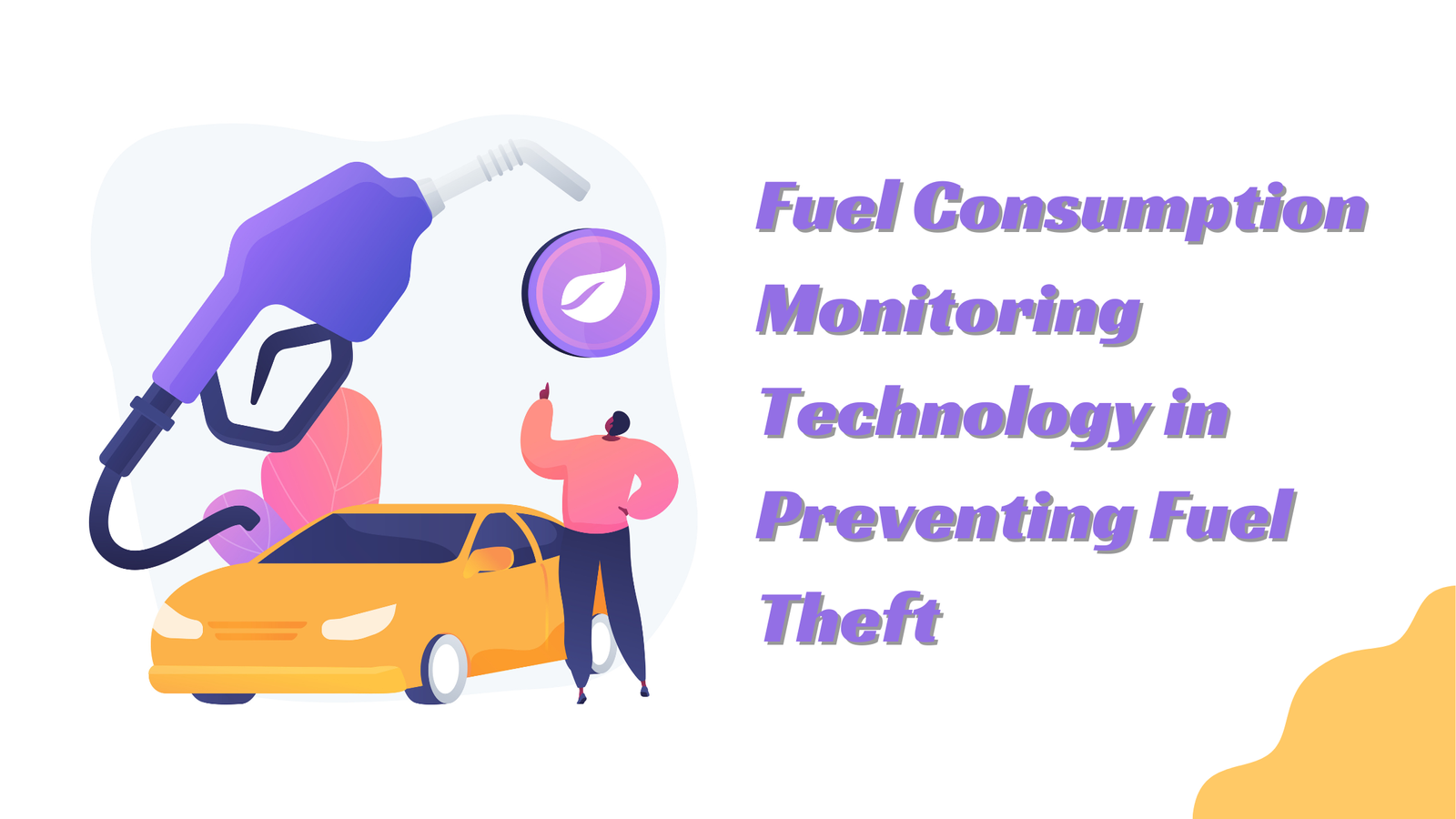Importance of Advanced Fuel Consumption Monitoring Technology in Preventing Fuel Theft
- 1 Addressing Fuel Theft Concerns with Technology
- 1.1 Real-time fuel Consumption Monitoring
- 1.2 Receive Automated Alerts
- 1.3 Hold Drivers Accountable
- 1.4 Effective GPS Tracking & Technology Integration
- 2 Creating a Comprehensive Fuel Theft Control System
- 3 How Can Fuel Theft Impact Your Business?
- 3.1 1. Direct Financial Losses
- 3.2 2. Increased Operational Costs
- 3.3 3. Decreased Productivity and Efficiency
- 3.4 4. Maintenance and Repair Costs
- 3.5 5. Safety and Environmental Risks
- 3.6 6. Insurance Implications
- 3.7 7. Employee Morale and Trust Issues
- 3.8 8. Reputational Damage
- 3.9 9. Legal and Regulatory Consequences
- 4 Strategies to Mitigate Fuel Theft
- 4.1 1. Advanced Fuel Monitoring Systems
- 4.2 2. Secure Fuel Storage Solutions
- 4.3 3. Employee Training and Awareness
- 4.4 4. Implementing Fuel Policies
- 4.5 5. Partnering with Security Firms
- 4.6 6. Leveraging Data Analytics
- 4.7 7. Collaborating with Law Enforcement
- 5 Conclusion
The world of fleet management and fuel storage is constantly expanding and evolving. In such an environment, businesses continually look for ways to improve performance, boost efficiency, and reduce costs. Advanced and robust fuel consumption monitoring technology can help achieve all that and then something more. The right technology can also help prevent or thwart fuel theft.
Addressing Fuel Theft Concerns with Technology
Fuel theft is a big concern for fleet operators. Integrating effective, wireless fuel monitoring goes a long way in preventing unauthorized fuel siphoning or usage. To begin with, you can receive instant alerts when fuel levels change from the expected consumption patterns. It can allow you to identify and address unauthorized usage or theft quickly.
There are different ways wireless fuel level sensor technologies can help address the concern of fuel theft:
Real-time fuel Consumption Monitoring
With fuel monitoring systems, you can access real-time data on fuel levels on the dashboard. This includes data on fuel consumption on every vehicle in your fleet. The information allows the immediate detection of any fuel usage discrepancies. When sudden fuel level changes or odd consumption patterns are detected, fleet managers can identify potential fuel theft.
Receive Automated Alerts
Advanced fuel monitoring systems can send out automated alerts triggered by certain events. Such events can include:
- A sudden drop in fuel levels
- Vehicles getting refueled at unauthorized locations
Such alerts allow your fleet managers to take appropriate actions or initiate investigations.
Hold Drivers Accountable
Access to in-depth fuel consumption data will make it easier to hold drivers accountable for their fuel usage. Such systems also make drivers aware that their actions are constantly monitored, which can be an additional factor in preventing fuel theft.
Effective GPS Tracking & Technology Integration
Integrating a remote fuel monitoring system and GPS tracking lets you pinpoint each vehicle’s location in real-time. When a car is detected outside its specific route, it can help raise an alert.
The latest wireless fuel level monitoring systems are compatible with advanced Bluetooth Low Energy (BLE) technology, GPS, and GLONASS trackers. They can also connect wirelessly with different types of satellite navigation terminals.
Creating a Comprehensive Fuel Theft Control System
Modern fuel monitoring systems can allow you to create comprehensive fuel theft control systems. Besides ensuring real-time monitoring, you can implement measures and develop training programs to prevent fuel theft.
When such advanced fuel theft monitoring systems combine with proven theft prevention strategies, fleet managers can benefit from:
- Reduced fuel theft risks
- Assets protection
- Improved operational efficiency
Fuel theft prevention can help improve your business’s cost efficiency. It can also contribute to retaining customer satisfaction while sustaining business growth.
How Can Fuel Theft Impact Your Business?

To fully understand the importance of remote fuel monitoring, you must comprehend the implications of fuel theft for your business.
1. Direct Financial Losses
Fuel theft’s most immediate and tangible impact is the financial loss incurred from the stolen fuel. Fuel costs constitute significant operational expenses for businesses operating large fleets or heavy machinery. Each instance of fuel theft directly translates to a financial hit. Even small amounts of fuel stolen over time can accumulate into substantial losses, impacting the bottom line.
2. Increased Operational Costs
Fuel theft often increases operational costs beyond the direct loss of fuel. To compensate for the stolen fuel, businesses may need to purchase fuel more frequently, which can disrupt cash flow and budget planning. Additionally, the administrative costs of investigating and documenting fuel theft incidents can be considerable.
3. Decreased Productivity and Efficiency
When fuel theft occurs, it can lead to disruptions in operations. Vehicles or machinery running out of fuel unexpectedly can cause delays in project timelines, missed deliveries, and reduced productivity. For industries like logistics, where timely delivery is crucial, such delays can damage client relationships and result in lost business opportunities.
4. Maintenance and Repair Costs
In some cases, fuel theft can involve tampering with fuel systems, causing damage that requires repair. For instance, thieves might damage fuel tanks, lines, or other components while stealing fuel. The cost of repairing this damage can be significant, adding to the overall financial burden on the business.
5. Safety and Environmental Risks
Fuel theft poses severe safety and environmental risks. Spilled fuel during theft attempts can create fire hazards and lead to environmental contamination. Such incidents can result in legal liabilities and business fines, further exacerbating the financial impact.
6. Insurance Implications
Frequent fuel theft incidents can lead to higher insurance premiums for businesses. Insurers may view repeated theft as a sign of inadequate security measures, prompting them to increase premiums or, in extreme cases, deny coverage altogether. This can further strain the business’s financial resources.
7. Employee Morale and Trust Issues
Fuel theft can also affect employee morale, particularly if employees are suspected of involvement. Trust issues can arise within the workforce, leading to a toxic work environment. Additionally, honest employees may feel demoralized if they perceive that the company is not effectively addressing the issue, potentially leading to decreased job satisfaction and higher turnover rates.
8. Reputational Damage
Reputation is a critical asset for any business. Incidents of fuel theft, especially if they are frequent or high-profile, can damage a company’s reputation. Clients and partners may question the business’s ability to manage its operations effectively and securely. In some cases, this reputational damage can result in lost contracts and decreased market competitiveness.
9. Legal and Regulatory Consequences
Depending on the jurisdiction, businesses may face legal and regulatory consequences for failing to prevent fuel theft. Regulations related to workplace safety, environmental protection, and asset management may be invoked, leading to fines and other penalties. Ensuring compliance with these regulations can involve additional costs and administrative burdens.
Strategies to Mitigate Fuel Theft
Given the significant impact of fuel theft on businesses, it is crucial to implement effective strategies to prevent and mitigate this issue. Here are some approaches that can help:
1. Advanced Fuel Monitoring Systems
Investing in advanced fuel monitoring systems can help businesses monitor fuel usage in real time. These systems can detect anomalies in fuel consumption, alerting management to potential theft. Technologies such as telematics, GPS tracking, and automated fuel gauges can provide detailed insights into fuel usage patterns and highlight irregularities.
2. Secure Fuel Storage Solutions
Implementing secure fuel storage solutions is essential to prevent unauthorized access. This includes tamper-proof fuel caps, locking mechanisms on fuel tanks, and safe storage facilities. Businesses can install security cameras and alarm systems for large storage tanks to deter theft.
3. Employee Training and Awareness
Educating employees about the impact of fuel theft and involving them in prevention efforts can be highly effective. Conduct regular training sessions to raise awareness about the signs of fuel theft and the importance of reporting suspicious activities. Encouraging a culture of honesty and integrity within the workforce can also help mitigate internal theft.
4. Implementing Fuel Policies
Establishing clear fuel policies and procedures can help manage fuel usage more effectively. These policies should outline employees’ responsibilities, fuel dispensing procedures, and reporting mechanisms for suspected theft. Regular audits and inspections can ensure compliance with these policies.
5. Partnering with Security Firms
For businesses experiencing frequent fuel theft, partnering with professional security firms can provide an added layer of protection. Security firms can offer on-site security personnel, surveillance systems, and risk assessments to identify vulnerabilities and implement tailored security measures.
6. Leveraging Data Analytics
Utilizing data analytics can help businesses identify patterns and trends in fuel consumption that may indicate theft. Companies can pinpoint anomalies and investigate potential issues by analyzing fuel usage data over time. Predictive analytics can also help forecast fuel needs more accurately, reducing the risk of unexpected theft-related shortages.
7. Collaborating with Law Enforcement
Maintaining a good relationship with local law enforcement agencies can be beneficial in preventing and addressing fuel theft. Law enforcement can provide valuable insights into local crime trends and offer support in investigating theft incidents. Reporting theft promptly and working closely with authorities can increase the chances of recovering stolen fuel and apprehending perpetrators.
Conclusion
Fuel theft is a pervasive issue that can have far-reaching consequences for businesses. The financial losses, operational disruptions, safety risks, and reputational damage associated with fuel theft necessitate proactive measures to prevent and mitigate this threat. By investing in advanced monitoring technologies, securing fuel storage, educating employees, and implementing robust fuel management policies, businesses can protect themselves against fuel theft and ensure smoother, more efficient operations. Taking a comprehensive approach to fuel theft prevention not only safeguards valuable assets but also contributes to the long-term sustainability and success of the business.

















